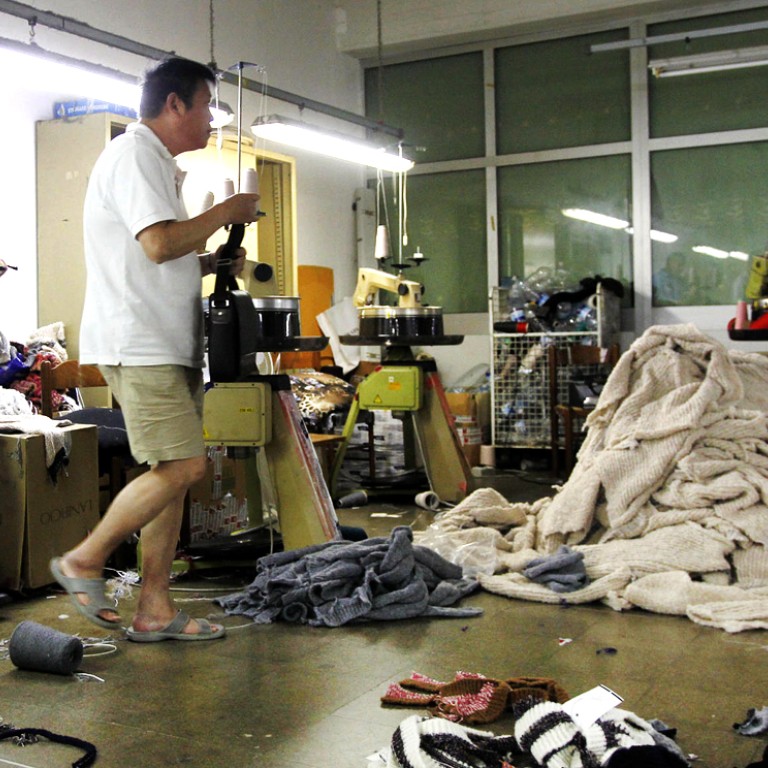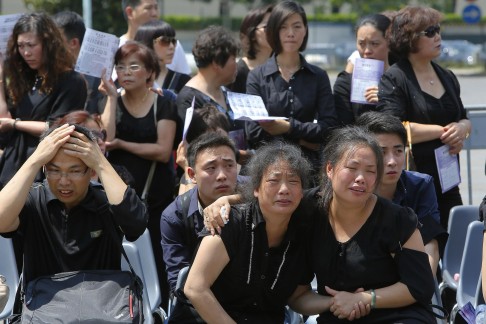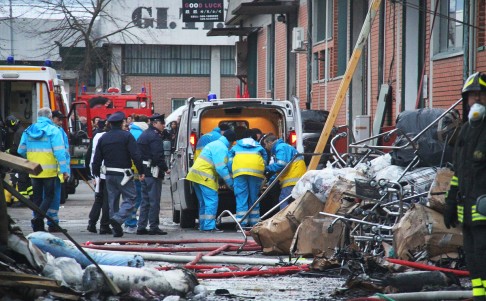
Italy fire opens seedy side of Chinese migrant labour
Deaths of illegal workers expose the real cost of the fashion industry's underground operators
There was no fire alarm fitted at the garment factory outside Florence where Chen Changzhong worked and lived.
Heat finally startled him awake on the morning of December 1 last year. Before him was a wall of burning fabric. He raced through the building and became the only worker to survive.
Seven people died at the Teresa Moda factory in Prato, a largely Chinese manufacturing district in Tuscany.
It was the deadliest in memory, exposing the true costs of cheap clothes and the pursuit of profit over safety in the thriving, illicit economy that has grown out of Chinese immigration to Italy.

Five people now face homicide charges, including two Italians who owned the building. Prosecutors contend they failed to meet basic safeguards such as fire alarms and adequate fire extinguishers. Defence lawyers say their clients are not guilty.
For years, thousands of Chinese migrants have been smuggled to Italy, finding work at factories that ignore basic safety standards, and billions of euros have been smuggled back to China, police investigations show.
The savings on tax and labour have given businesses that break the law a crushing competitive advantage.
In a sign of the growing global impact of Chinese crime, the justice ministers of China and Italy last month signed a memorandum of cooperation on investigations in the fight against trans-national organised crime.
"Chinese communities are very closed and difficult to penetrate," said Franco Roberti, Italy's chief anti-mafia prosecutor. "Until now, we haven't had the possibility of relating with Chinese investigative authorities."

More than 40,000 Chinese live in Prato, 15,000 illegally, making it one of the highest concentrations of Chinese in Europe.
Many migrants started their own businesses and created a kind of outsourcing in which merchandise wasn't exported, but people were.
Teresa Moda was one of thousands of Chinese factories that churned out cheap "fast fashion" garments, taking advantage of the proximity to Europe, their main market, and the allure of the "made in Italy" brand. Yet the clothes were made by Chinese workers in Chinese factories.
Critics say migrants imported a cultural disregard for regulations that did not maximise profit, which had allowed Chinese businesses to thrive right through the global financial crisis.
Authorities have raided more than 1,900 Chinese factories in the past 61/2 years, closing 909 for safety and labour violations. Sanctioned factories rarely bothered to fix the problems, preferring to reopen under a new name, said Flora Leoni, a police captain.
Prosecutors said the only fire exit at Teresa Moda was blocked by tonnes of flammable fabric, a claim that a defence lawyer contested.
Workers slept at the factory, illegally. According to court documents, Chen put in between 13 hours to 17 hours a day for between €2 (HK$19.60) and €3 an hour, under Italy's minimum wage.
Prosecutors said the deaths could have been prevented.
Authorities spent months trying to prove a woman named Lin Youlan was actually in charge of Teresa Moda and that the legal owner was a front.
Chinese companies often open and close quickly to avoid scrutiny, and prosecutors said Teresa Moda was the fourth run by Lin in the building.
Lin's defence lawyer, Gabriele Zanobini, said she was an employee of Teresa Moda and never owned a business at the address.
After the fire, Lin helped send 900,000 yuan (HK$1.13 million) to each dead worker's family. Zanobini said the payments were made out of a sense of moral responsibility, not to derail the trial.
